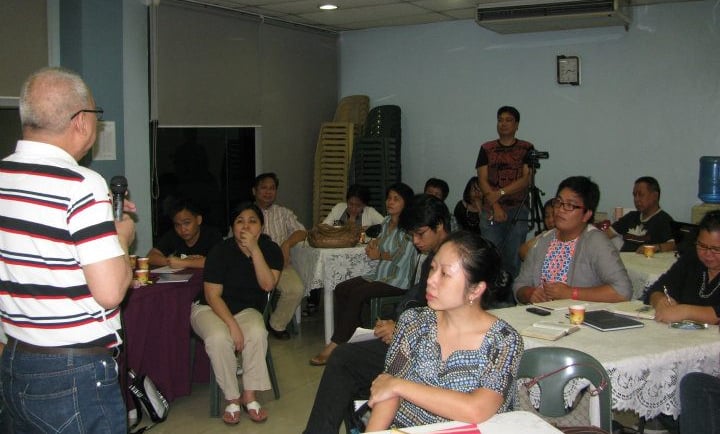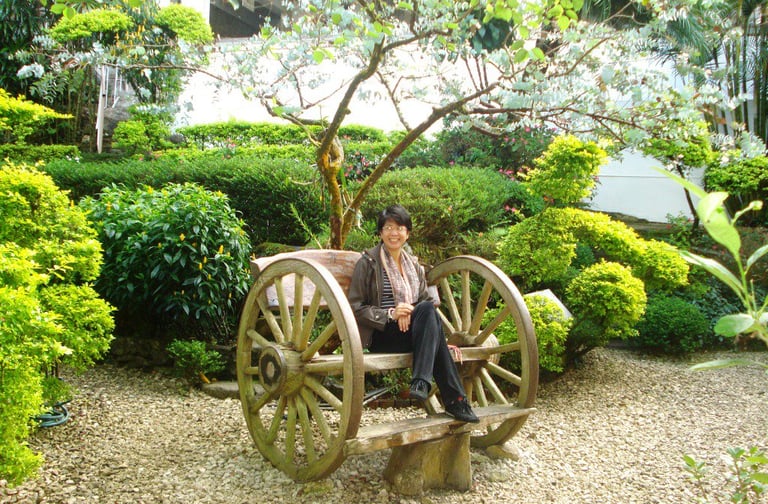10 Things We Must Do if We Must Write
PERSONALFELLOWSHIP AT WORDHOUSE


Writing is a discipline that requires consistency. The more I write, the more I realize that there are ten things I must remember to write at all.
Strictly speaking, I was a fellow only once in a palihan sa malikhaing pagsulat (creative writing workshop). I consider this a missed step to becoming a writer in my country. At least four Philippine universities sponsor these creative writing workshops geared toward the nurturing of ‘young writers’ who get enlisted in those programs when their submissions pass initial screenings. In the early 90s, I kept submitting poems to one fellowship with notarized authentication, but my submissions consistently failed. Then, already past my 30s, I felt ‘old’ and eventually stopped joining.
When I took my master's degree, my professor in drama passed my play to one university palihan. At the time of my master's studies, I became a fellow among beginning writers in their late teens and early twenties. In that ten-day writer’s workshop, I was impressed with the talents and motivations of those young people. I don’t remember the play I wrote, nor whether I desired to revise it, but I can still recall moments of some of the brightest rising stars at the time – who are now certified, published authors.
1. They Wrote with Passion
Enthusiasm is a surface layer; passion, a deep immersion. During breaks at the workshop, I was struck by the participants' conversations. They talked about their favorite authors, lauded mentors, and discussed intricate writing techniques. They shared a nuanced understanding of their craft, exchanging writing knowledge they cherished.
The sheer intensity of their engagement with texts, even when their works were dissected, revealed the shallowness of my own carefree, hobby-like approach to writing. For them, writing was more than just an activity; it was their defining gift, the core of their identity.
2. They Set Writing Goals
Every participant in that workshop had a project with a clear title and purpose. As young as they were, fully intent on finishing a short story, a personal essay, a Filipino poem, or a novel, they presented their works for critique to get published. In stark contrast, I submitted a play merely to fulfill a class requirement. I was guilty of neglecting the play before, during, and after the workshop, and I never intended it for the stage.
If we will write at all, we must write to publish. Merely producing words without a clear goal seems futile. To write without the intention of sharing our work with a wider audience neglects the crucial element of intellectual exchange. Writing for publication necessitates a rigorous process of refinement, demanding clarity of thought, precision in language, and a commitment to contributing meaningfully to a larger discourse. A published work is a public offering that has the potential of fostering dialogue and advancing knowledge.
3. They Wrote Freely
During the palihan, the first drafts were raw expositions of skills and identity. Eventually, the workshop would point out each draft's strength and limitation exposed in the free-writing. A thousand words eventually get trimmed as the fellows learned about how to render their ideas into the most precise expressions. Free writing brought out the honest details of self and ideas of self that were later polished. Writing a thousand words is traversing through objects and elements for eventual keeping, or letting go.
4. They Wrote and they Wrote
Some find their best writing time in the morning, others in the evening. Distraction is always a challenge for writers, every time they begin. Writing is hard mental work, turning plain words into real understanding. It needs reading, research, and putting facts together, going beyond just feelings. But writing is finding a path through confusing ideas. Most of the writers in the workshop have been exploring topics their constant writing has shown them to be important life themes.
5. Read the Local Writers
The workshop attendees were decidedly bookish. Their avid reading, especially in Filipiniana, exposed a stark gap in my own knowledge. The facilitators were published Filipino authors. I, however, had only read my Drama professor's anthology, not his plays. The attendees knew their literary idols, eager to learn and define their own styles. It was a truly humbling experience, revealing the extent of my ignorance of Philippine literature and their passionate drive to learn.
6. Work with Fellow Creatives
The fellowship nurtured a strong community of new writers who have maintained contact and celebrated each other's growth. The group photograph brings back memories of the workshop, and social media keeps me updated on their publishing successes. Though our personal relationships may seem secondary, I know they eagerly support each other's book launches, zines, comics, and films. One participant has published two short story collections, another has established a Filipiniana publishing house, one leads a network of freelance writers, and another is a sought-after book designer and illustrator. Throughout their careers, the twenty-five participants have consistently offered encouragement and celebrated each other's creative milestones.
7. Join a Fellowship of Writers
The workshop writers have fostered their own communities of learners. The cycle of writing education continues, with valuable knowledge passed down. They are now driving change through innovative fellowships, independent publishing that embraces all Filipino languages, multidisciplinary approaches, and a more inclusive writing community. A true writing community is rooted in friendship, celebrating the craft without the corrupting influence of monetization. Seek out writing groups to expand your knowledge, and share your wisdom in return.
8. Record References
Beyond general note-taking, meticulous reference recording—books, papers, websites—is fundamental to our writing practice. It's crucial for initial drafting and research during editing and revision. Without clear records, verifying sources becomes problematic. We ensure not only source accuracy but also our own integrity. In our hypertext culture, where intertextuality is paramount, meticulous referencing allows us to clearly establish our original contribution.
9. Get involved with empathy
The nature and extent of writer involvement varies. However, we cannot simply contribute to the cacophony. As writers, our words must transcend mere noise. Commenting or writing about deeply felt issues should not be driven by trends or bandwagons. Yet, much writing, especially in the age of algorithms, risks devolving into mere content production. We must recognize the weight of our influence. If we are truly passionate about writing, we cannot simply spew words for the sake of it.
10. Examine, Introspect, Stand
Despite our craft, success, and influence, we hold the responsibility to examine the content of our deepening voices. Our introspection must extend beyond achievements, focusing on true growth. We are, inherently, works in progress, and our writing should exemplify this continuous development. Let us always remember that growth is a constant.
Ultimately, writing is a journey of continuous learning and growth. By embracing passion, setting clear goals, and fostering a supportive community, we can navigate the challenges and rewards of this craft. Let us write with purpose, integrity, and a deep understanding of our own evolving voices, knowing that our contributions, however small, can resonate deeply in the world.


